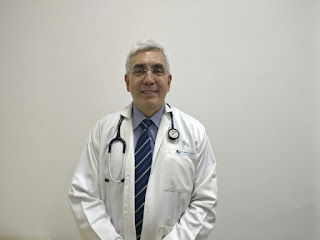Kanpur, 11 Aug 2016: About 5.5 million patients in India, with 3.6 million in rural India are affected from epilepsy – making it a major health problem in India. Apollo Hospitals organized a press conference today in Kanpur addressing management of epilepsic disorders amongst the people; stressing on its higher incidence in childhood & old age. Senior Apollo Consultants spoke about how it can affect one's safety, relationships, work and often how people are treated is a bigger problem than the seizures itself.

Throwing light on the epilepsy ailments caused due to variety of ailment in the brain, Dr Mukul Varma, Senior Consultant - Neuroscience, Indraprastha Apollo Hospitals Delhi said, “It is a disorder in which nerve cell activity in the brain is disturbed, causing seizures. The cause can be illness, brain damage, or abnormal development of the brain. No cause can be determined for about three-quarters of the cases of epilepsy because it has so many effects that can be linked to a number of other conditions and it becomes sometimes very difficult to determine the aetiology in a particular case. One common cause in india is neurocycerosis (infestation of the brain by tapeworm eggs.”
Further explaining about the risks associated with the disease, Dr Varma added, “Epilepsy can be a life-threatening condition. Some people are at special risk for abnormally prolonged seizures or sudden unexplained death as the normal pattern of neuronal activity becomes disturbed, causing strange sensations, emotions, and behaviour or sometimes convulsions, muscle spasms, and loss of consciousness. It is not uncommon for people, especially children, to develop behavioural and emotional problems in conjunction with seizures. Issues also arise as a result of the stigma attached to epilepsy, which can lead to embarrassment and frustration or bullying, teasing, or avoidance in school and other social settings”.
Explaining about the current treatment plans for this condition Dr Varma said, “The treatment of epilepsy has evolved considerably over the years from the use of standard antiepileptic drugs to the addition of newer AEDs. Most of these newer drugs have been used as add on therapy in the treatment and have helped a lot to make the patient seizure free. Neuroimaging has significantly changed the way treatment of difficult epilepsy is approached. The epilepsy surgery has gone a long way and has definite role to play in a select group of patients. At various times, in the past people with epilepsy were shunned, locked up in mental institutions or forbidden to marry or have children. Seizures were thought to be caused by witchcraft, insanity, possession by demons etc. but the fact still remains that the epilepsy is caused by an electrical discharge in the brain.”
About Indraprastha Apollo Hospitals
Indraprastha Apollo Hospitals, India’s first JCI accredited hospital, is a joint venture between the Government of Delhi and Apollo Hospitals Enterprise Limited. Commissioned in July 1996, it is the third super-specialty tertiary care hospital set up by the Apollo Hospitals Group. Spread over 15 acres, it houses 57 specialties with more than 300 specialists and more than 700 operational beds, 19 operation theatres, 168 ICU beds, round-the-clock pharmacy, NABL accredited laboratories, 24-hour emergency services and an active air ambulance service. Apollo Hospitals Delhi has the leading programme in kidney and liver transplant in the country. The first successful paediatrics and adult liver transplants in India were performed at Indraprastha Apollo Hospitals. The hospital is at the forefront of medical technology and expertise. It provides a complete range of latest diagnostic, medical and surgical facilities for the care of its patients. The Hospital has introduced the most sophisticated imaging technology to India with the introduction of 64 slice CT and 3 Tesla MRI, Novalis Tx and the integrated PET Suite. Indraprastha Apollo has also pioneered the concept of preventive health check programmes and has created a satisfied customer base over decades. The Hospital has been consistently ranked amongst the best 10 hospitals in India by The Week survey for the past few years.
